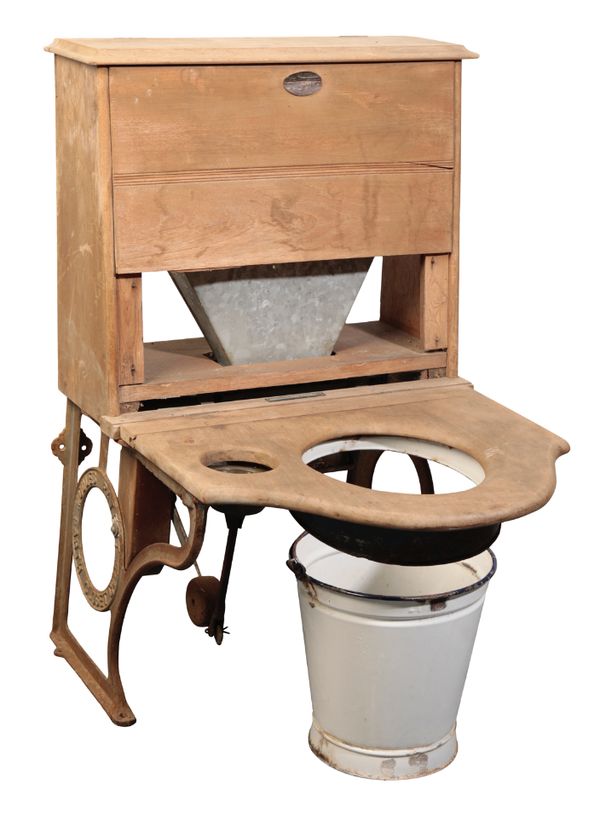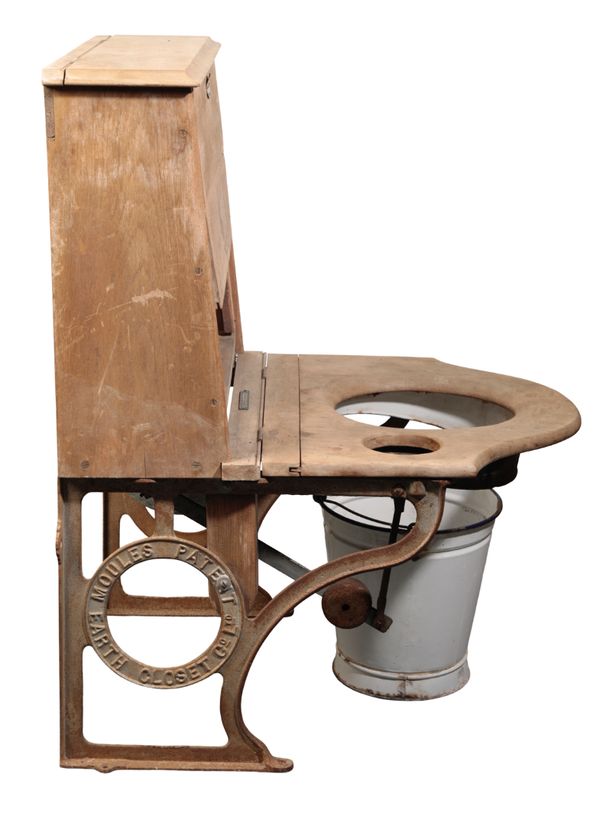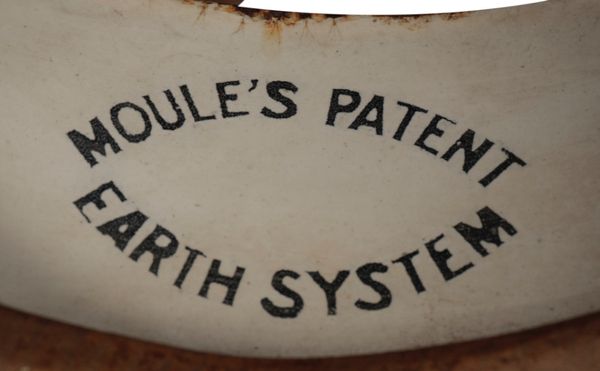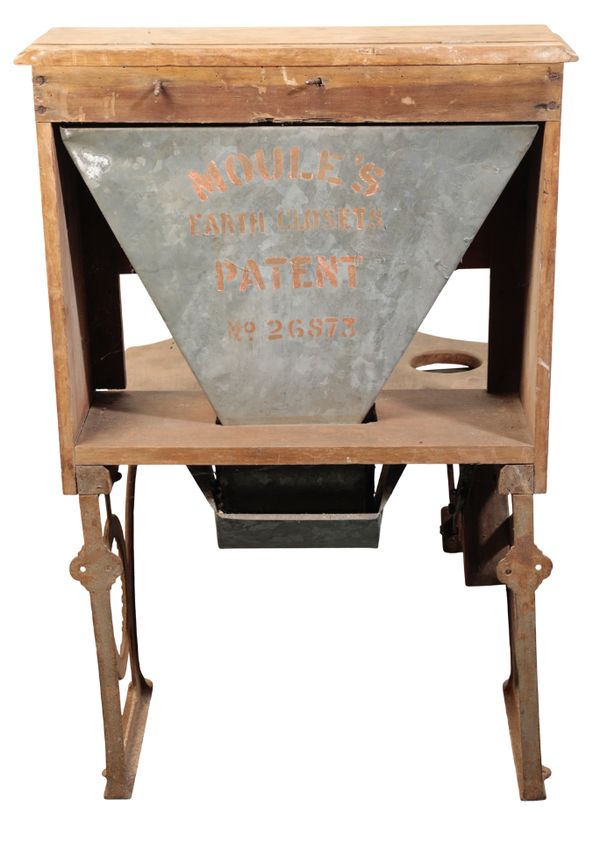97cm high, with enamel pail
| Estimate: | £200 - £400 |
| Hammer price: | £380 |
In 1859, the Reverend Henry Moule of Fordington invented the first composting toilet after deciding that his family's cesspit had become intolerable.
Moule discovered that dry earth, mixed with human waste, produced clean compost in just a few weeks. A religious man, Moule disapproved of the Water Closet. He felt it polluted God's rivers and seas and was a waste of God's nutrients contained in excrement, which should be returned to the soil.
In 1873 Moule took out a patent on his design for a mechanical earth closet, which allowed human manure to be saved for return to the soil, without the owner having to endure the stink of the average privy.
Dry earth or peat is put into the hopper at the back of the seat and a removable bucket placed below. When the handle is pulled, a small quantity of earth is spread on top of the human waste to reduce the smell and help it to decay. When the bucket is full the contents are dug into the garden.
Henry Moule (1801-1880) the sixth son of George Moule, solicitor and banker, was born at Melksham, Wiltshire, on 27 January 1801, and educated at Marlborough Grammar School. He was elected a foundation scholar of St John's College, Cambridge, and graduated B.A. 1821 and M.A. 1826. He was ordained to the curacy of Melksham in 1823, and took sole charge of Gillingham, Dorset, in 1825. He was made vicar of St George's at Fordington in the same county in 1829, and remained there for the remainder of his life.
For some years he undertook the duty of chaplain to the troops in Dorchester barracks, for whose use, as well as for a detached district of his own parish, he built in 1846, partly from the proceeds of his published ‘Barrack Sermons,’ 1845 (2nd edit. 1847), a church known as Christ Church, West Fordington. In 1833 his protests brought to an end the evils connected with the race meetings at Dorchester.
Moule also wrote an important work, entitled ‘Eight Letters to Prince Albert, as President of the Council of the Duchy of Cornwall,’ in 1855, prompted by the condition of Fordington parish, belonging to the Duchy. In two letters in the Times of 24 February and 2 April 1874 he advocated a plan for extracting gas from Kimmeridge shale. He died at Fordington vicarage on 3 February 1880.




